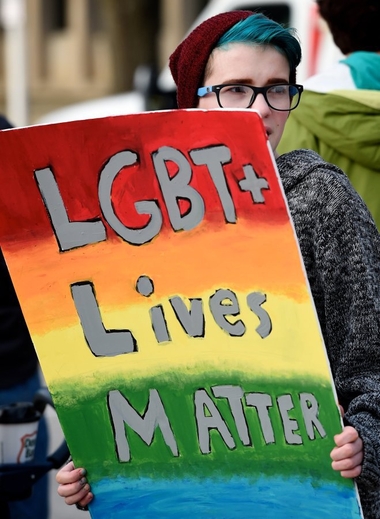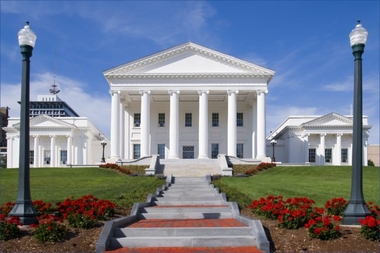Republicans block hate crime law for LGBT+ people in Virginia

Republicans in Virginia have voted down a hate crime law that would have introduced basic protections for LGBT+ people.
Despite widespread support for LGBT+ equality, Virginia is one of more than 20 states that still has no hate crime law protecting people against crimes motivated by homophobia.
And the state’s Republican-controlled legislature is still working to block basic protections for LGBT+ people.
This week, Republicans shamefully voted down SB112, which would have added disability, gender, gender identity and sexual orientation to the state’s definition of a hate crime.

The bill was blocked by a vote in the Senate Courts of Justice Committee, in a 9-6 vote entirely along party lines.
The committee’s nine Republicans – state senators Ben Chafin, Ryan McDougle, Tommy Norment, Mark Obenshain, Mark Peake, Bryce Reeves, Bill Stanley, Richard Stuart and Glen Sturtevant – all voted against the law.
Meanwhile the six Democrats – Creigh Deeds, John Edwards, Janet Howell, Chap Petersen, Louise Lucas and Richard Saslaw voted for the bill.
More on Virginia:
Newly diverse Virginia House convenes for its first day
Winner chosen in Virginia congressional tie
Va. GOP would rather stop using gendered language than refer to Danica Roem as a woman
Republicans hold power by a wafer-thin 21-19 majority in the state Senate and a 51-49 majority in the House of Delegates, despite Democrats winning 53% of the vote in last year’s House elections.
The GOP continues to resist the introduction of LGBT+ hate crime laws at the state level across much of the U.S.
In 2009 President Barack Obama signed the Matthew Shepard and James Byrd Jr. Hate Crimes Prevention Act, aiming to afford some basic decency to victims of anti-LGBT+ crimes in states with no hate crime laws.
The law expanded the 1969 United States federal hate-crime law to include crimes motivated by a victim’s actual or perceived gender, sexual orientation, gender identity or disability.
Under the Act, the federal government is able to pursue charges in hate crime cases where there is no state-level protection.
It also gives federal authorities greater ability to engage in hate crimes investigations that local authorities choose not to pursue.
However, the lack of state-level laws can leave victims of hate crimes reliant on the federal government’s intervention to get justice.
Copyright 2018 The Gayly – January 16, 2018 @ 12:30 p.m. CST.





